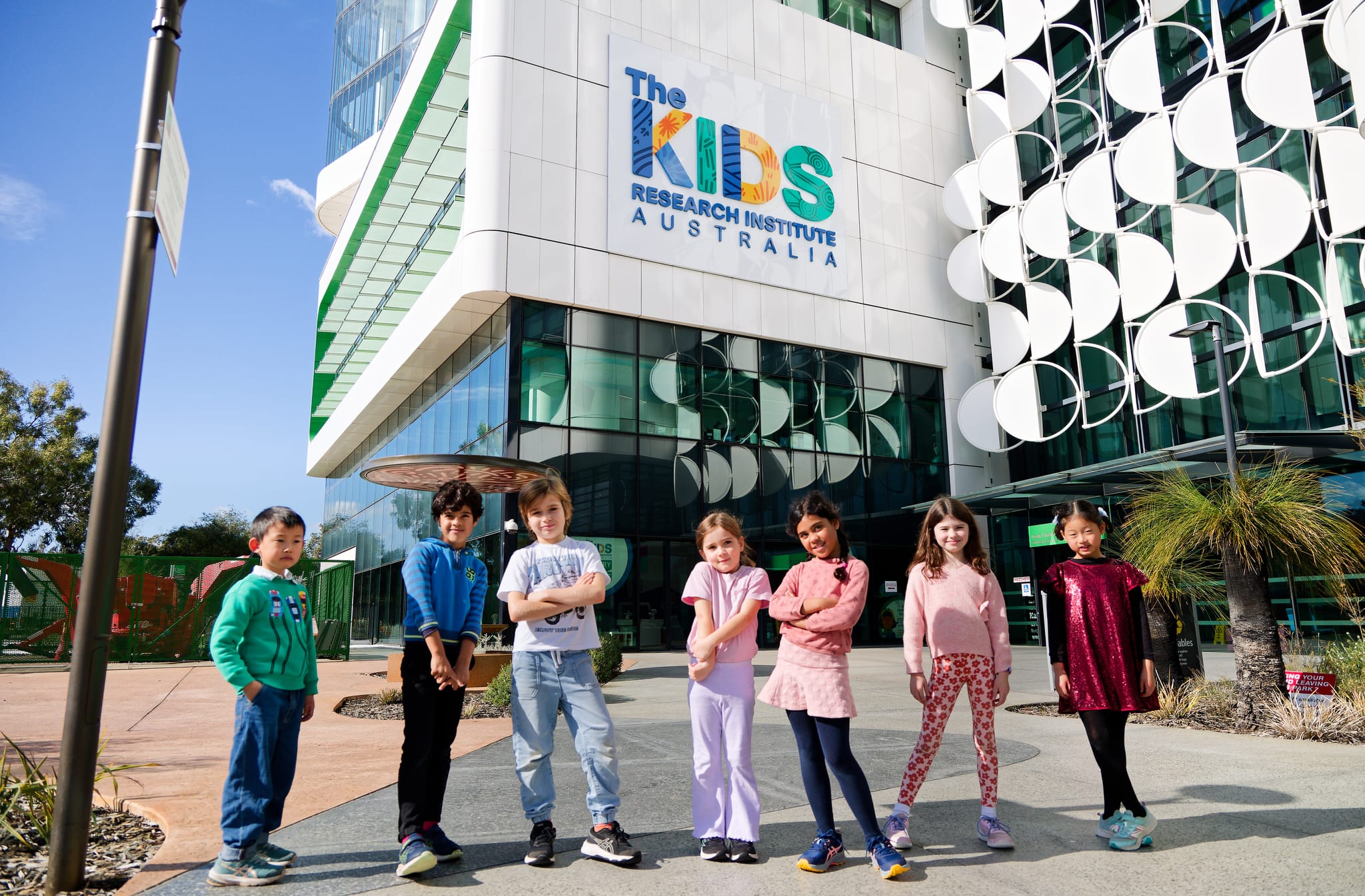
Researchers from The Kids Research Institute Australia will share in almost $4 million in grants to continue groundbreaking research to tackle childhood cancer, asthma, respiratory viral infections and more.
The funding from the WA Child Health Research Fund (WACRF) - established by the Cook Government and the Channel 7 Telethon Trust – provides grants up to $600,000 to support research into a range of critical health issues affecting young West Australians.
Professor Jane Pillow (The Kids and The University of Western Australia) will follow up on a previous study, CIRCA DIEM, which examined whether simulating a natural day–night environment in hospital could help establish healthy circadian rhythms in Western Australian children who were born very preterm.
The grant will assess the sight, hearing, sleep, lung function, and general wellbeing of these children, now 5-7 years old, to determine if those who received the day–night intervention in hospital after birth have better outcomes than those who received standard care.
Funding for Dr Bernadette Ricciardo (Wesfarmers Centre of Vaccines and Infectious Diseases, based at The Kids, and UWA) will go toward developing an inpatient Aboriginal Health Practitioner-led skin health assessment and research evaluation initiative for Aboriginal children at Perth Children’s Hospital.
Dr Ricciardo’s team have designed a novel model of care: Moorditj Marp (Strong Skin) – SHARE (Skin Health Assessment and Research Evaluation), where Aboriginal children will be offered inpatient skin health assessment, dermatology treatment, and education by an Aboriginal Health Practitioner.
Evaluation of SHARE will assess effectiveness, efficiency, acceptability and equity. This project is an important step toward achieving ‘strong skin for strong health’ for all WA Aboriginal children.
Associate Professor David Sommerfield’s (The Kids, Perth Children’s Hospital and UWA) project will investigate potentially safer, more effective pain management alternatives for children following tonsil removal surgery.
In addition to risk of diversion of opioids into the community, there is often parental resistance to giving children opioids. Dr Sommerfield’s team aim to assess the safety and health outcomes of a novel opioid-free postoperative treatment option, by comparing clonidine versus opioids to manage pain in children in a randomised controlled trial at Perth Children’s Hospital.
Funding for Associate Professor Laurence Cheung (The Kids and Curtin University) will go towards examining improved, less harmful treatments for use in children with Acute lymphoblastic leukaemia (ALL). ALL is the most common cancer in children - and unfortunately, children with high-risk ALL face poor outcomes and treatment complications.
This research aims to improve life expectancy and quality of life for children with high-risk ALL by testing a new treatment to enhance immunotherapy in leukemia models.
Two researchers from the Wal-yan Respiratory Centre, a powerhouse partnership between The Kids, PCHF and PCH, received funding for critical respiratory research.
Dr David Hancock (Wal-yan Respiratory Centre at The Kids, PCH and UWA) will focus on early identification of asthma risk using interferon-based diagnostics. Wheezing disorders, including viral wheeze and asthma, affect up to 30-40% of all WA children, however it is clinically challenging to identify which children will go on to experience recurrent wheezing and life-long asthma.
This project aims to progress development of an ‘interferon’ diagnostic test to predict future asthma risk, by extending the initial observations into additional birth cohorts.
Dr Katherine Landwehr (Wal-yan Respiratory Centre and Curtin University) is working to determine whether the use of OM85 treatment can be safely and effectively used during bone marrow transplant (BMT) treatment in children to provide recipients with greater protection against infection.
One in five children do not survive the first year after a BMT, with half of these deaths caused by respiratory viral infections. Dr Landwehr’s team will use established preclinical mouse models to determine the safety of training BMT patients’ immune systems with OM85 to boost protection against infections.
Professor Tim Jones, Professor Liz Davis and Associate Professor Craig Taplin (all from The Kids, UWA and PCH) are part of a project, led by Professor Chandra Balaratnasingam (UWA) from the Lions Eye Institute, which will examine whether the retina can reveal early signs of damage in other organs in children with diabetes.
Children with diabetes are at risk of developing complications affecting their eyes, kidneys, nerves, and heart, which often go unnoticed until permanent damage has occurred. The team has developed a non-invasive, child-friendly eye imaging tool which will be used to detect early signs of injury to the retina of the eye, which in turn can reveal damage to organs elsewhere in the body. This project will transform detection and prevention of complications in childhood diabetes.
The WACRF was established by the Department of Health and the Channel 7 Telethon Trust in 2012 to provide financial support to research projects that focus on the health of children and adolescents in WA.
For more information, see the Minister’s media release.
